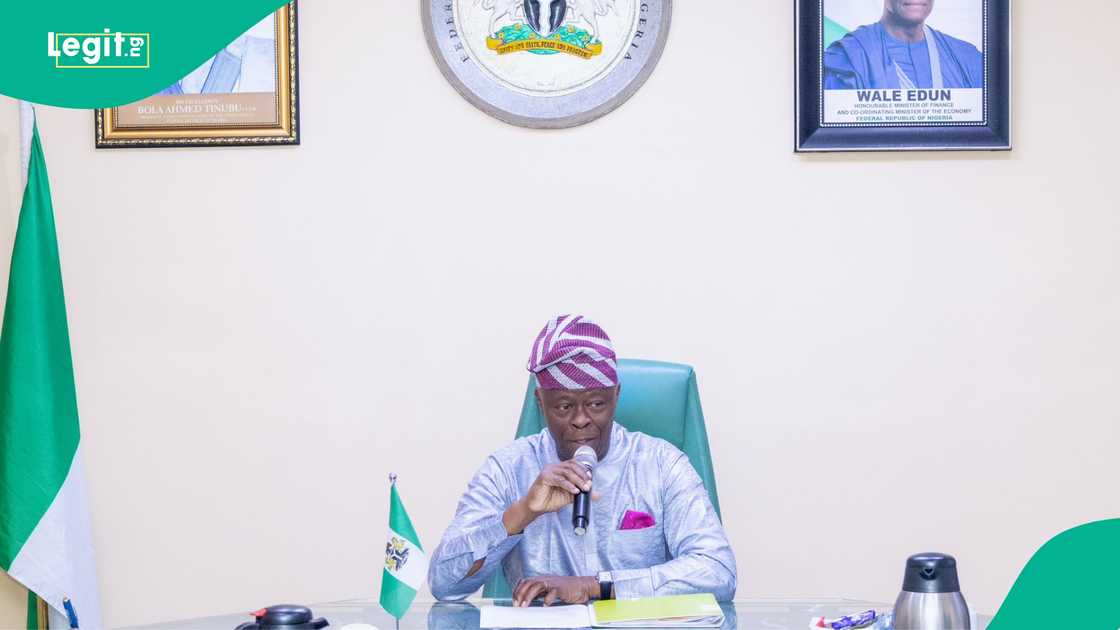FG Addresses Concerns On Fresh Loans, Shares A Sustainable Plan To Repay The Debts With Ease
- After paying back the COVID-19 loan secured from the International Monetary Fund (IMF), the federal government submitted a fresh loan request
- This move provoked several reactions from Nigerians, including former Vice President Atiku Abubakar, who complained about the debt burden on future generations
- The federal government has explained the real reasons behind the loans and shared how it plans to repay these debts with ease
Legit.ng journalist Ruth Okwumbu-Imafidon has over a decade of experience in business reporting across digital and mainstream media.
The federal government has addressed public concerns over the recent proposals to secure fresh loans for selected projects.
President Bola Tinubu, on Tuesday, 27 May 2025, submitted a proposal to the House of Representatives seeking approval for an external borrowing plan totalling over $21.5 billion, alongside the issuance of N757.9 billion in domestic bonds to address a critical infrastructure deficit.
The government has now explained that these loans would be repaid using a self-financing infrastructure model that will allow major projects to generate the funds needed to repay the debts incurred for their development.

Source: Twitter
The Minister of Finance and Coordinating Minister of the Economy, Olawale Edun, explained during an interview on Arise News on Thursday that the loans are being secured for major national projects such as ports, railways, roads, and solar plants for power generation.
Upon completion, the projects would be handed over to private operators in a concession arrangement that would allow the proceeds to be used to defray the debts.
FG addresses concerns about fresh debts
Mr. Edun noted that many of the public’s concerns over the debts are not justified, as the current loans being secured are infrastructure-linked in line with the government’s Medium Term Expenditure Framework.
He added that they are structured to be repaid over extended periods, allowing the projects to fully kick off and easing the debt burden on the government.
He described them as long-term investments in productive sectors of the economy, rather than immediate cash injections.
How FG plans to increase revenue
Speaking about revenue, the finance minister stated that the government is going to continue prioritising projects that can bring in revenue through user fees and tariffs.
He explained that investing in such projects will generate long-term revenue for the government while also attracting private investors to inject capital and drive economic growth.
He listed areas such as port expansion and power generation projects, which will bring in revenue from users and help offset the loans.
Keep in mind that foreign debt obligations have already exceeded $43 billion, and the new loans will increase the figure.

Source: Facebook
For the IMF COVID-19 loan, which the government recently cleared, there are outstanding charges and interests to be repaid until 2029.
Mr. Edun assured that the government would be plugging revenue leakages with modern technology to ensure that all revenue-generating agencies remit their operating surpluses so that they can go into repaying the loans.
FG borrows N300 billion from Nigerians through bonds
In related news, the federal government has issued N300 billion worth of bonds to the Nigerian investing public in March 2025.
The Debt Management Office announced that the bonds would be issued at the rate of N1,000 per unit with a minimum subscription of N50,001,000 (fifty million and one thousand naira) and in multiples of N1,000 thereafter.
The two offers on the bonds include a five-year savings bond at 19.30% annual returns, due to mature in April 2029, and a nine-year savings bond at 19.89% annual returns, due to mature in May 2033.
Source: Legit.ng





